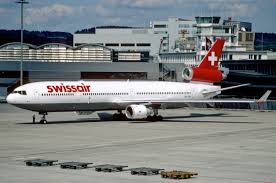Airline Cancels Flights: Understanding the Recent Surge

The Current State of Airline Cancellations
In recent months, the global aviation industry has witnessed a significant surge in flight cancellations, affecting thousands of travelers across Canada and the world. Major airlines have announced plans to cut back on operations due to a variety of factors including staffing shortages, rising fuel costs, and unpredictable weather conditions. The spike in cancellations raises concerns about travel reliability during a time when many Canadians are eager to explore post-pandemic.
Key Contributing Factors
As airlines struggle to meet demand, particularly during peak travel seasons, operational challenges have become evident. Reports indicate that many airlines are grappling with staff shortages, particularly in flight crews and ground support. This issue stems from a combination of factors including attrition, illness, and ongoing hiring difficulties. Additionally, rising fuel costs have forced airlines to reconsider their operations, leading to route cancellations, especially for less profitable flights.
Recent Flight Disruptions
According to recent data released by the Canadian Transportation Agency, nearly 14% of flights were canceled in August alone, a marked increase from previous years. Popular airlines including Air Canada and WestJet announced significant flight cancelations, impacting both domestic and international travel plans. Travelers have reported long wait times for rescheduling options and compensation, further exacerbating the situation.
Impact on Travelers
The ripple effects of these cancellations have been extensive, causing confusion and frustration for countless passengers. Airports have seen an increase in travelers seeking assistance, while social media has been flooded with complaints from individuals whose flights have been disrupted. The travel industry is now at a critical junction; as lines blur between peak and off-peak seasons, airports may remain congested as travelers scramble to book last-minute flights.
Looking Ahead
Experts suggest that the industry may not see relief from the current challenges until next year, as airlines work to stabilize operations and improve staffing levels. Consumers are advised to remain vigilant when planning their trips, and consider purchasing flexible tickets or travel insurance to navigate the uncertainties ahead. The ongoing volatility in the airline sector is a reminder that while the world is opening up, the path to recovery remains bumpy.
Conclusion
In summary, the considerable rise in airline cancellations has significant implications for travelers planning to fly in the near future. Understanding the reasons behind these disruptions can help passengers make informed decisions about their travel plans. As the airline industry continues to adapt to the shifting landscape, it is crucial for travelers to stay updated on their itineraries and the latest developments to mitigate the impact of cancellations.









